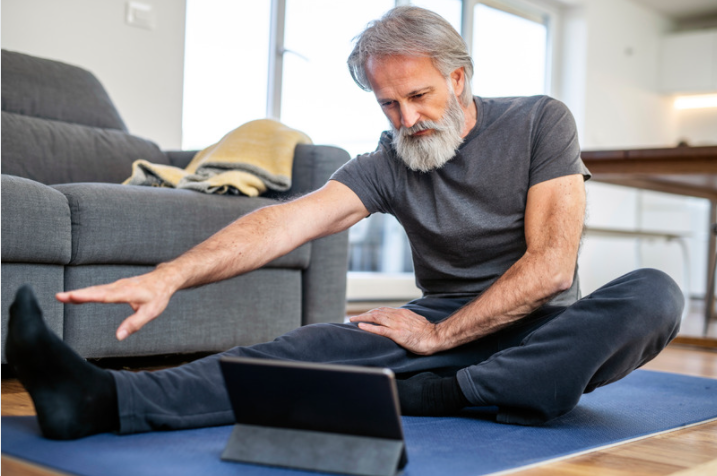The problem of post-COVID rehabilitation
70% of COVID patients suffer from muscular and respiratory sequelae that require therapeutic rehabilitation.
Physiotherapists and rehabilitation physicians play a fundamental role in the management of these patients, whether during their stay in intensive care, in conventional hospital sectors, or during the follow-up and rehabilitation phase at home.
Prolonged stay in intensive care has mainly respiratory and orthopedic consequences. Furthermore, apart from patients requiring intensive care, the clinical picture of COVID-19-related stroke (respiratory, cardiovascular, hepato-renal, neurological, cognitive, musculoskeletal, metabolic and behavioral impairments) may result in rehabilitation needs in these patients. Physiotherapy care is therefore based on 3 aspects: respiratory, motor and prevention of complications. (Smondack P. et al, 2021)
The pandemic caused by the coronavirus has highlighted the healthcare problems of the health services when they were overwhelmed by the avalanche of mild and severe cases of patients carrying the disease. This was no different for rehabilitation services which, in many cases, were closed, leaving a multitude of patients without assistance.
Now, although the situation has been stabilized thanks to vaccination, the pandemic continues to pose a challenge at the clinical level. Both in the early stages of the disease and in the recovery and follow-up of its sequelae.
Aware of this fact, and within the framework of the innovation program Horizonte 2020, the EU launched the project COVID X, which aims to take the fight against the pandemic to a new level, helping to bridge the gap between the digital sector and the European healthcare system.
The project seeks AI and Big Data solutions that combat the challenges posed by the coronavirus, validating and scaling the results to save lives.
It is in this context that the association of our entity takes place, TRAK, with the Clínica Asunción from Guipúzcoa.

A telerehabilitation project in the fight against the pandemic
The COVID-X program funds technology companies and healthcare providers to accelerate data-driven solutions with the ability to overcome challenges in disease diagnosis, prognosis and monitoring.
Thus, the two entities from Gipuzkoa have joined forces to develop a tele-rehabilitation project for post-COVID patients that would fit into the project and have managed to make it one of the thirteen selected from among the almost 80 that applied for the program.
This is how our CEO explained it, Jon Vital Corres, recently in an interview in the Diario Vasco:
“The project we are going to develop together with Asunción Klinika seeks, through TRAK, our telerehabilitation platform, to respond to some of the challenges posed by the pandemic.
On the one hand, for patients with musculoskeletal pathologies, to reduce the need to travel to the rehabilitation department without compromising the quality of care.; and, on the other hand, to offer specific tele-rehabilitation for post-COVID patients. There is currently no tool on the market that offers a digital physiotherapy service to this type of patient and that is why we want to take the step to make TRAK the solution that the sector needs”.
In this way we can say that TRAK brings to the project the technological tool, a tele-rehabilitation platform, unique in the market, which allows the follow-up and monitoring of patients with various pathologies by means of Artificial Intelligence.
Asunción Klinika, for its part, provides the clinical vision. The center’s rehabilitation physicians and physiotherapists have validated the platform’s exercise videos and have proposed new ones. In addition, a test will soon be launched with patients from the rehabilitation department, monitored and controlled by their team, so that patients can continue the treatment at home and without having to go to the gym.
What is TRAK?
TRAK is a telerehabilitation platform that, through artificial intelligence, offers physiotherapists a tool that allows them to prescribe therapeutic exercise in a more agile and simple way.
In addition, it gives the patient a way to exercise and perform the exercises that their physiotherapist instructs them to do, in a correct and controlled manner, using only the camera on their mobile device or laptop. TRAK’s machine vision system allows the platform to ‘think’ for us and be able to give the patient corrections in real time.
